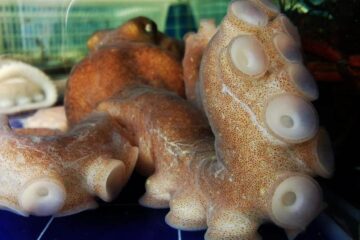K-State researcher working to improve alternatives to equine antibiotics

Antibiotics can save lives. But the increasing occurrence of antibiotic-resistant bacteria presents a number of challenges for researchers in medicine.
Veterinary medicine is no exception and Dr. Elizabeth Davis, assistant professor of equine internal medicine at Kansas State University, is working to help improve alternative methods for combating infectious diseases in horses. “In veterinary medicine and medicine in general, we’re running out of antibiotics, so we have to be extremely careful of the antibiotics we use, the duration that we use them and the species that we use them in,” Davis said.
To help better prepare the horse industry for a limited number of effective antibiotics, Davis has researched the presence of antimicrobial peptides in horses. According to Davis, antimicrobial peptides are produced by the body as an immediate immunological response to pathogens and generally target and kill bacteria. Davis recently found genetic information relating to two of these peptides in horses.
The idea of stimulating the immune system to help animals efficiently and naturally fight infection is nothing new, Davis said. There are a number of commercial immune stimulants on the market, but they are rather mild and often have to be used in conjunction with antibiotics.
Specific DNA sequences found within one such stimulant are known as CpG motifs. These specific DNA sequences might be what stimulate an effective immunological response, Davis said. With hopes of helping to develop more powerful immune stimulants, Davis is examining different DNA sequences containing immunostimulatory CpG motifs to identify which sequences contain the most effective motifs.
“In effect, what we may be able to do is specifically turn on antimicrobial peptide production and other immune response factors that help ward off infection,” Davis said. “What it would mean is we hope we could use shorter antibiotic therapy.”
Davis said she also hopes to find which motifs are the most stimulating to equine immune cells as well as how the immune response is initiated. Such research would continue to drive the development of more effective commercial immune stimulants.
“I think we could improve on something that works well,” Davis said about the commercial stimulants. “The ultimate goal would be to reduce antibiotic usage for infectious diseases. People do commonly use the commercial products, so I think there would be some interest to have something that was better.”
Davis is completing her Ph.D. under the direction of Dr. Frank Blecha.
“The antimicrobial peptide cloning/sequencing work has been part of my graduate work; the immunomodulation with CpG DNA studies are my current focus,” Davis said.
Media Contact
More Information:
http://www.vet.k-state.eduAll latest news from the category: Life Sciences and Chemistry
Articles and reports from the Life Sciences and chemistry area deal with applied and basic research into modern biology, chemistry and human medicine.
Valuable information can be found on a range of life sciences fields including bacteriology, biochemistry, bionics, bioinformatics, biophysics, biotechnology, genetics, geobotany, human biology, marine biology, microbiology, molecular biology, cellular biology, zoology, bioinorganic chemistry, microchemistry and environmental chemistry.
Newest articles

Octopus inspires new suction mechanism for robots
A new robotic suction cup which can grasp rough, curved and heavy stone, has been developed by scientists at the University of Bristol. The team, based at Bristol Robotics Laboratory,…

Peptides on Interstellar Ice
A research team led by Dr Serge Krasnokutski from the Astrophysics Laboratory at the Max Planck Institute for Astronomy at the University of Jena had already demonstrated that simple peptides…

A new look at the consequences of light pollution
GAME 2024 begins its experiments in eight countries. Can artificial light at night harm marine algae and impair their important functions for coastal ecosystems? This year’s project of the training…





















